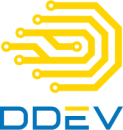Site Reliability Engineer
Qualifications
- Experience managing production Kubernetes clusters.
- Experience running applications in productions on Kubernetes.
- Must be fluent in at least one programming language such as Python, GoLang or Ruby.
- 3+ years in a combination of DevOps, SRE, Software Development or Systems Operations roles.
- 1+ years experience managing production workloads on a major cloud provider such as AWS, GCP, Azure or DigitalOcean.
- Demonstrated understanding of containers and container orchestration.
- Troubleshooting skills that span systems, network (TCP/IP), and code.
- Must have experience building or managing large-scale systems and application architectures.
- Solid understanding of system performance and monitoring.
- Working knowledge of cloud computing including virtualization, hosted services, multi-tenant cloud infrastructures, distributed storage systems and content delivery networks.
- Experience working with source control management tools, GitHub is a huge plus.
- Excellent verbal and written communication skills.
Nice to Haves
- Experience building extensions to the Kubernetes API such as Custom Resource Definitions using tools such as Kubebuilder, Operator SDK or Aggregated API Server.
- A demonstrated history of working on and contributing to open source projects.
- Experience work on remotely distributed
- Experience with load balancers such as Elastic Load Balancer, NGINX, Envoy, HAProxy or Google Cloud Load Balancer
- Experience with Cloud Native ecosystem projects such as Cluster Autoscaler, CoreDNS, Pod Autoscaler, etc
- Experience with infrastructure configuration and automation processes and tools: Ansible, Fabric, Terraform, Puppet, Chef.
- Experience with hosting Content Management applications such as Gatsby, Drupal, Typo3, etc.
- Experience with monitoring solutions: Prometheus, ELK, Splunk, SUMO, Nagios or fluentd
- Experience with various data technologies including relational and nonrelational databases and message queues.
- Experience with distributed storage systems: S3, Ceph, GlusterFS, EFS, EBS or Rook
Apply here:
